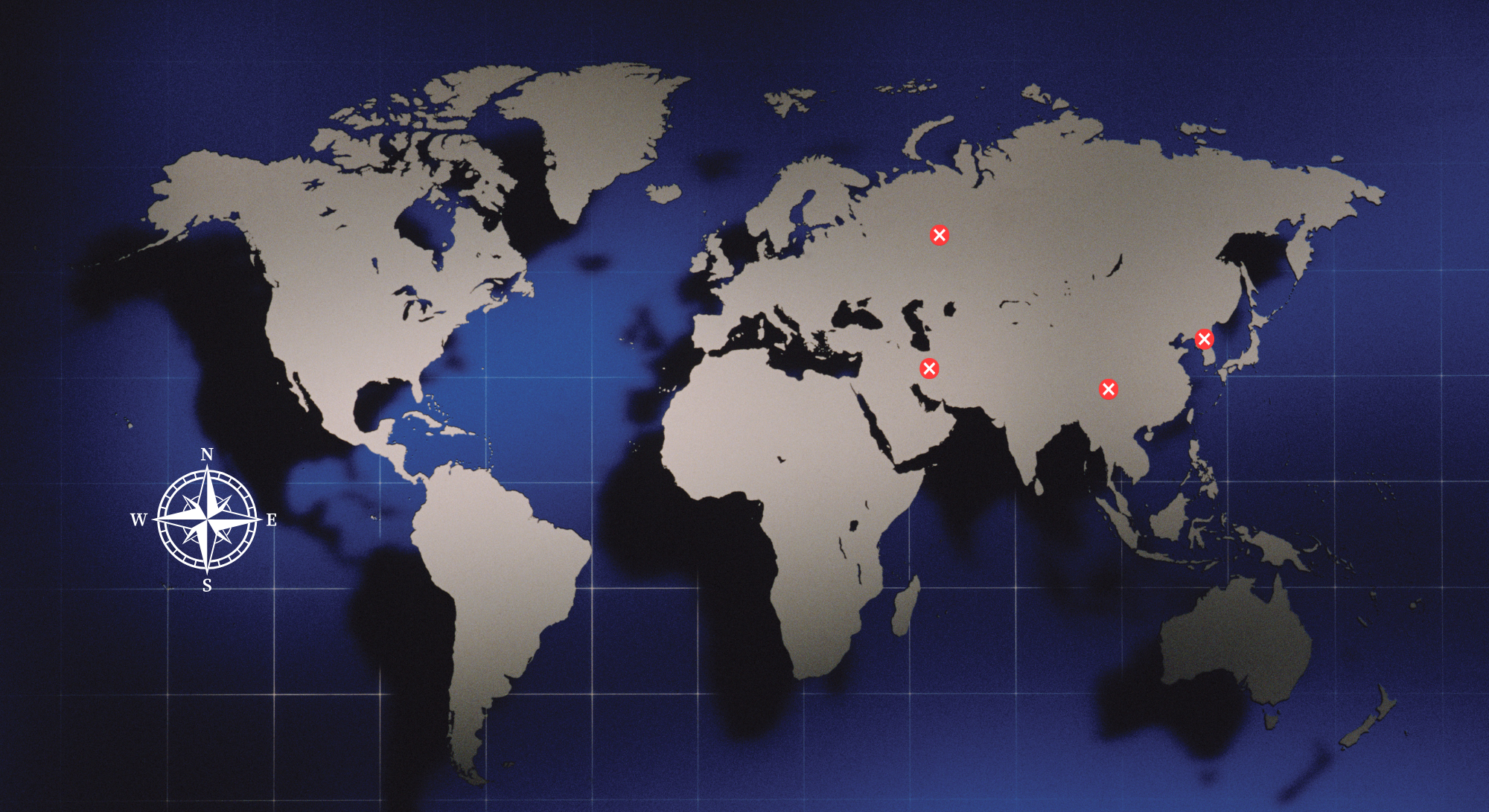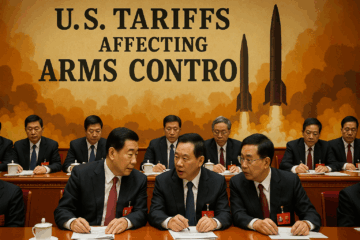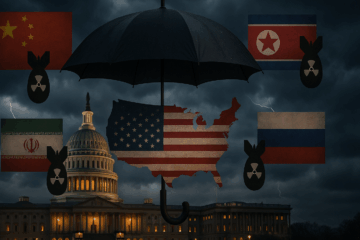The Middle East experienced significant geopolitical shifts over the past year. In October 2023, Hamas launched a surprise attack on Israel, resulting in approximately 1,200 Israeli deaths. Israel’s subsequent military response led to an estimated 40,000 Palestinian casualties, predominantly in Gaza.
The conflict caused widespread destruction and displacement, exacerbating the long-standing humanitarian crisis in the region. It then extended into Lebanon, where Iran-backed Hezbollah engaged in hostilities against Israel. On November 27, 2024, following months of intense confrontations, the US brokered a 60-day ceasefire, allowing thousands of displaced individuals to return to southern Lebanon. However, the ceasefire’s durability remains uncertain, with speculation concerning potential violations and the broader implications for regional stability.
In Syria, rebels led by Hayat Tahrir al-Sham (HTS) capitalized on regional unrest to seize control of key areas, including Aleppo, Idlib, and Hama. The Assad regime’s traditional allies—Iran, Hezbollah, and Russia—were preoccupied with their own conflicts, allowing the Assad regime’s overthrow. HTS, which is presumably anti-Iran, is making Syria more difficult for Iran to influence. Iranian influence allowed the regime to transit armaments to Hezbollah in Lebanon.
Over the past year, Israel intensified its military operations to degrade Iran’s proxy forces across the Middle East, employing a combination of airstrikes, special operations, and strategic assassinations. On October 26, 2024, Israel launched Operation Days of Repentance, targeting over 20 locations in Iran, Iraq, and Syria. This operation significantly damaged Iran’s capabilities for missile production and utilization of its air defense systems.
This also included the destruction of long-range surface-to-air missile batteries and detection radars. Israeli operations employed targeted assassinations to eliminate key figures within Iran’s proxy networks, including Hassan Nasrallah, who was eliminated in an airstrike in Beirut on September 27, 2024, along with other senior officials. Previously, on July 31, 2024, in an operation attributed to Israel, another notable assassination in Tehran, Iran, eliminated Ismail Haniyeh, the political leader of Hamas.
Furthermore, Israeli special forces conducted covert special operations and missions to disrupt Iran’s proxy activities. For instance, in September 2024, Israeli commandos raided an underground facility near Masyaf, Syria, known for its weapons development and potential use by Iran and Hezbollah to produce precision-guided missiles. Israeli forces also captured Ali Soleiman al-Assi in southern Syria in November, accusing him of aiding Iranian intelligence efforts.
Despite the systematic degradation of Iran’s proxy forces in the region, Iran continues to advance its nuclear program, posing a significant threat to the region. The head of France’s foreign intelligence agency stated that Iran’s nuclear proliferation poses a serious threat in the coming months, and both France and the United Kingdom are developing strategies to counter this threat.
However, the current geopolitical and military dynamics may present a unique opportunity for Israel to strike Iran, with a focus on neutralizing its nuclear and regional threats. A combination of factors, particularly the expectation of a West-backed Israeli military action to prevent Iran from acquiring nuclear weapons, can underpin the reasoning.
Degraded Proxy Capabilities
In the past few months, Israel has effectively degraded the operational strength of Iranian-affiliated groups such as Hezbollah, Hamas, and Shia militias in Syria and Iraq. Moreover, the precise eliminations of various leadership divisions within Hezbollah and Hamas significantly undermine the command frameworks of Iran’s affiliates and their capacity to orchestrate operations.
Furthermore, Israeli precision strikes and covert operations effectively dismantled essential facilities supporting these groups, thereby diminishing their capacity for swift counteractions. With its proxies weakened, Iran is likely encountering difficulties in coordinating a robust regional strategy.
Israeli operations significantly degraded Iran’s air defense systems, including their Russian S-300s and other advanced defense platforms. This leaves critical facilities, including nuclear sites like Natanz and Fordow, more exposed to precision strikes aimed at eliminating Iran’s nuclear threat. Some Western experts believe that a successful strike now could potentially delay Iran’s nuclear ambitions for many years.
Domestically, Iran is also facing severe economic challenges, including unemployment, inflation, and widespread dissatisfaction among its population, which was further fuelled by protests over the past two years as a result of the dire economic situation of the country as well as the increasing repression by the regime. Ongoing protests and internal dissent are already straining the regime’s resources. Analysts believe that Iran’s leadership is significantly preoccupied with maintaining internal stability rather than launching a significant retaliatory campaign.
Overall, reports indicate that Iran’s national funds are nearly depleted, along with most of its financial resources being drained by its support to military and proxy activities. In addition, energy shortages, including electricity and gas, have fueled Iran’s economic crisis, thus, severely impacting its citizens and therefore further increasing civil unrest towards the regime.
That said, there is already a growing gap between the government and the public. This gap spans economic, political, and social aspects along with the increasing dissatisfaction over the government’s inability to address internal civil needs in parallel to the increasing repression by the regime.
Iran’s nuclear program is progressing at a rapid pace, with the emergence of reports indicating the installation of advanced centrifuges and uranium enrichment nearing the weapons-grade levels. Israel and the West may be seeing this as a narrowing window of opportunity to act decisively before Iran develops a nuclear weapon or possesses weapons-grade uranium. The possibility of delaying a firm action could allow Iran to fortify its facilities further or even achieve a nuclear breakout.
Iran’s foreign minister recently stated that if the West proceeds with the threat of reimposing all United Nations sanctions, Iran is likely to move toward possessing its own nuclear weapons. This statement raises concerns about the effectiveness of the sanctions against Iran over the past years in advancing its nuclear objectives.
The ceasefire with Hezbollah and reduced clashes with Hamas is expected to establish a brief respite in regional conflicts. However, the US and European allies are growing increasingly exasperated with Iran’s unwillingness to engage on its nuclear program, which could render decisive action more acceptable on the diplomatic front. Arab nations, while cautious, share concerns about Iran’s regional influence and the progress in the development of its nuclear capabilities.
Although Iran held a new round of nuclear talks with France, Germany, and the United Kingdom on November 29, 2024, talks resulted in minimal progress and no immediate course of action. This underscores the fact that diplomatic discussions with Iran yielded nothing in recent years, except for Iran’s continued advancement in its nuclear aspirations.
Furthermore, this will likely increase Europe’s shift towards adopting a hard-line position regarding engagement with Iran on nuclear issues. In this respect, it was reported that US President-elect Donald Trump is weighing options in countering Iran’s nuclear developments, including the option for a preventive airstrike.
Recent Israeli successes against Iran and its proxies created strategic momentum. Waiting too long could allow Iran to rebuild its defenses and recover its regional proxies to actively engage in attrition warfare with American and Israeli forces in the Middle East. This could occur while potentially working covertly in strengthening its own nuclear program. In this respect, some security analysts may argue that a Western-supported Israeli strike would leverage the latter’s current military and intelligence superiority in countering Iran’s regional proxies.
While highlighting these opportunities, it is also important to anticipate the possible risks, including the regional escalation involving Hezbollah, Yemen’s Houthis, Iraqi militias, and Syria. The risk of fully strained international relations with Iran also exists, especially if a strike triggers widespread civilian casualties or destabilizes global oil markets. Furthermore, a military action could arguably accelerate Iran’s nuclear ambitions clandestinely.
Those advocating for prompt action are likely to contend that the dangers of failing to act against Iran surpass the dangers of launching a pre-emptive strike before it is too late, putting Iran in a position to acquire nuclear weapons or nuclear-grade enriched uranium. It can be argued that the current moment is a fleeting alignment of weakened Iranian proxies, vulnerable defenses, and growing nuclear threats, making it a strategically opportune time to act decisively in pressuring Iran to refrain from pursuing its nuclear program. Finally, with President’s Trump return, it can be assumed that the new US administration may not have the immediate intention to pursue diplomacy with Iran, instead it would be more likely that a “maximum pressure” campaign would be adopted.
Mohamed ELDoh, PhD, is a business development and consulting professional in the defense and security sector. He regularly authors articles addressing defense cooperation, counterterrorism, geopolitics, and emerging security threats in the Middle East and Africa.
About the Author

Mohamed ELDoh
Dr. Mohamed ELDoh is a business development and consulting professional in the defense and security sector. Mohamed holds a doctorate degree from Grenoble École de Management - France, an MBA from the EU Business School-Spain, and an Advanced Certificate in Counterterrorism Studies from the University of St. Andrews, UK. He regularly authors articles addressing defense cooperation, counterterrorism, geopolitics, and emerging security threats in the Middle East and Africa.




